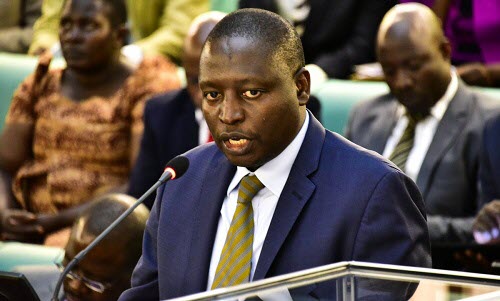The government has announced that it will introduce digital stamps to help track the origin of counterfeit goods that make their way into the market.
Mr. David Bahati, Planning state minister, said every imported product will bear a stamp right from the factory so as to enable the Uganda National Bureau of Standards (UNBS) to verify the quality of the goods.
“Fake goods are not supposed to be in our economy so we cannot legitimize them by increasing taxes on them or reducing taxes on the genuine ones. We are going to make sure they do not enter the market. We have already signed an agreement with a service provider for digital stamps for the Uganda Revenue Authority,” Mr. Bahati said.
“We think if we did that, which we are going to do in a few months from now because we have finished the arrangements, then fake goods will be reduced on the market,” he added.
He was speaking at a conference held by Stop Counterfeit Products Africa (SCP-Africa) in Kampala on Tuesday.
See also: Uganda to start manufacturing smartphones
Digital Tax Stamps are physical paper stamps which are applied to goods or their packaging but in this case contain security features and codes to prevent counterfeiting, tamperproof features, track and trace capabilities to enable; consumers validate the stamp, traders and manufacturers track the product movement and government to monitor compliance of the product and stamp.
The stamps also have a quick response code (QR code) that will allow distributors, retailers, and consumers to use an app on their smartphones to verify the authenticity of the products.
Mr. Bahati said consumers will be able to verify the genuineness of the product and stamp by simply looking out for the physical security features on the digital stamp and/or sending an SMS of the reference number on the stamp to the URA and feedback shall be given with key details about the manufacture of the product.
Mr. Allan Mulindwa, the SCP-Africa managing partner, said many counterfeits are manufactured at low cost but put the lives of Ugandans at risk.
Related:
SafeBoda reveals next country it is expanding to after Kenya
How African market defined Uber’s global operations

